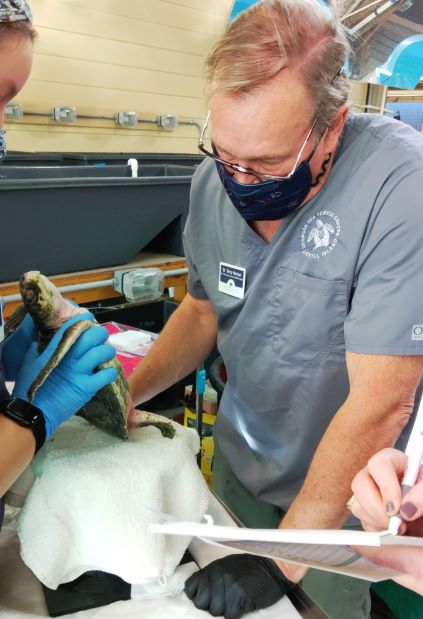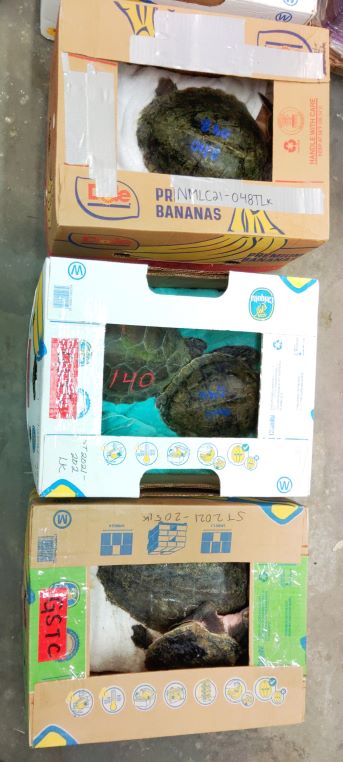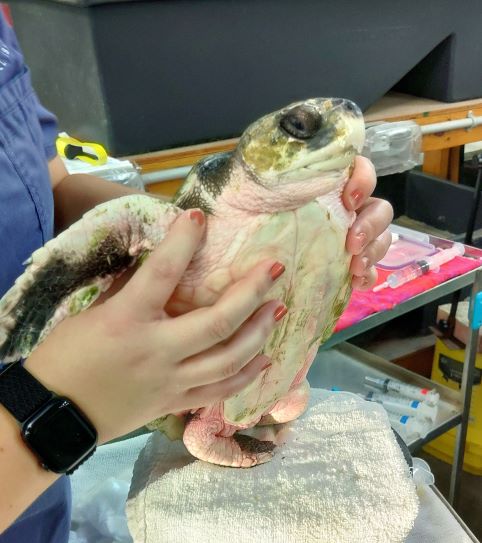By Nicki Thomas, JIA’s GSTC Education Program Manager
With more than $8,000 raised in support of sea turtles, the inaugural Cold-Stunned Plunge was held Saturday, November 27th to benefit the rehabilitation efforts of the Georgia Sea Turtle Center, on behalf of the Jekyll Island Foundation. Saturday morning was indeed chilly as the island welcomed nearly 250 participants to bravely plunge into the Atlantic Ocean. The event was inspired by the journey of the Center’s winter patients stunned by the cold weather.
As marine reptiles, rapidly changing weather and the geography of the coast can lead sea turtles into trouble. Each year, as water temperatures drop below 60 degrees Fahrenheit, hundreds of cold-stunned (similar to hypothermia) sea turtles wash onto land. Cold-stunning impacts a sea turtle’s metabolism, immune system, and can lead to skin and shell wounds from being tossed on to rocky shores.
The timing of the Cold-Stunned Plunge was the perfect prelude to the following week as ten cold-stunned sea turtles arrived for care at the Georgia Sea Turtle Center. The turtles were originally rescued and admitted to the New England Aquarium days before they were transported south by volunteers from Turtles Fly Too, LLC. Eight Kemp’s ridleys, one green, and one loggerhead sea turtle arrived late afternoon at the Jekyll Island airport.
Initially, each sea turtle was examined, bloodwork was processed, and radiographs were taken by Dr. Norton and the rehabilitation staff. All the new patients received fluid therapy to combat dehydration, low blood sugar, and/or low blood protein. Many arrived with severe pneumonia which is treated using nebulization. Nebulization allows the turtles to breathe medications directly into their lungs where it is needed most. Some of the sea turtles also have abrasions and external wounds treated with an antibiotic cream called silver sulfadiazine, which is often used to treat human patients with severe burns. Watch our newest Scute’s School video to learn more about winter survival and cold-stunned sea turtle patients.
The primary species impacted by cold stunning is the Kemp’s ridley sea turtle, which is considered a critically endangered species by the International Union for Conservation of Species (IUCN). Every turtle returned to the wild makes a true impact in the future of the species. It takes government agencies, private corporations, volunteers, and non-profits, like the Jekyll Island Foundation, to make such a regional partnership possible. We are excited to continue sharing the stories of patients as they make their recovery and are returned to their ocean home.
To help fund cold stunned and other wounded turtles recover at the Georgia Sea Turtle Center, click HERE.




